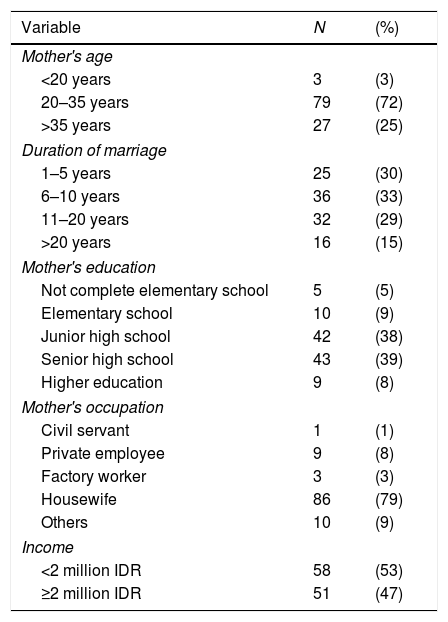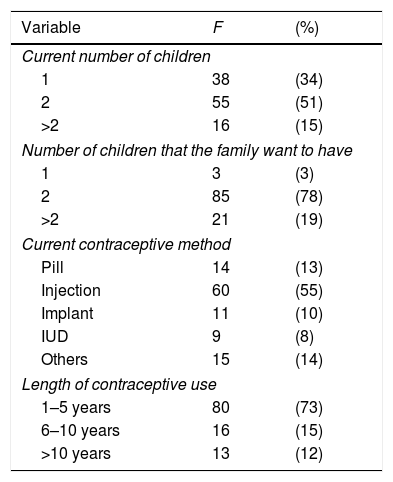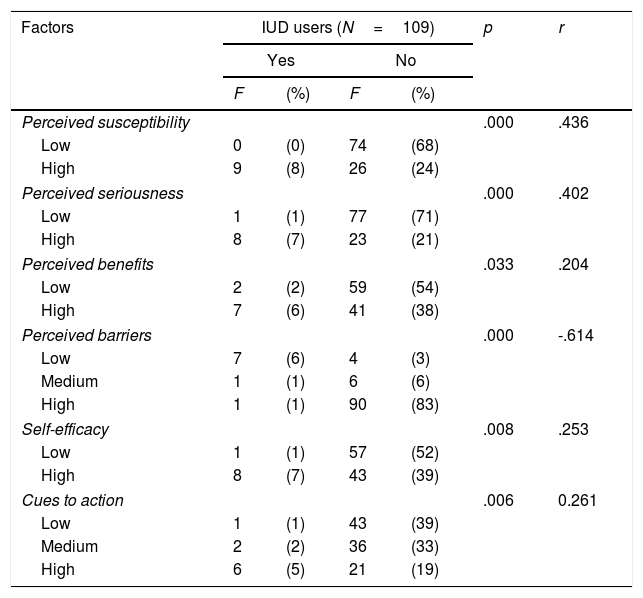
4th International Conference for Global Health (ICGH) in conjunction with the 7th Asian International Conference in Humanized Health Care (AIC-HHC)
Más datosThis study aimed to identify the correlation between perceived susceptibility, perceived seriousness, perceived benefit, self-efficacy, perceived barrier, cues to action, and the choice of using the intrauterine device. A cross-sectional study was carried out to 109 mothers in Ngudikan Village. Data were collected using questionnaires. The data was analyzed using the Spearman Rank correlation with a level of significance α=0.05. The result show that there is a correlation between perceived susceptibility (p=0.000; r=0.436), perceived seriousness (p=0.000; r=0.402), perceived benefits (p=0.033; r=0.204), perceived barriers (p=0.00, r=−0.614), perceived self-efficacy (p=0.008; r=0.253) and cues to action (p=0.006; r=0.261) had a correlation with the choice of intrauterine device in Nganjuk, Indonesia. Perceived susceptibility, perceived seriousness, perceived benefits, self -efficacy, and cues to action will affect the decision of mothers in choosing an intrauterine device. This study recommended further research on a transcultural nursing approach to follow up on the result of this study.
Artículo
Comprando el artículo el PDF del mismo podrá ser descargado
Precio 19,34 €
Comprar ahora









